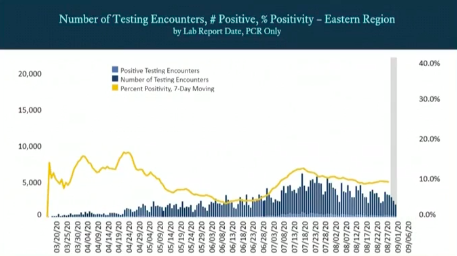The Virginia Credit Union League (VCUL) announced Wednesday that its longtime president, Richard D. “Rick” Pillow, will retire on June 30, 2021, after dedicating 40 years to the credit union system.
“Anyone who has worked with Rick knows his passion for credit unions,” VCUL Board Chairman Patsy Stuard, CEO of Fort Lee Federal Credit Union, said in a statement. “His leadership and vision helped us position the league as the voice, champion and premier resource for Virginia’s credit unions. Rick’s guidance, his knowledge of the system and his enthusiasm will be missed, but he leaves a legacy of contribution and accomplishment that helped forge the league into the strong, stable, mission-focused organization it is today.”
Pillow began his career with credit unions in 1978 when he was hired by VCUL to serve as a consultant to credit unions. He served in several roles with the VCUL, its corporate credit union and with Martinsville DuPont Employees Credit Union (now ValleyStar Credit Union). In 1997, he was promoted to VCUL executive vice president, and on Jan. 1, 2000, became president, succeeding Eugene H. Farley Jr.
“What a privilege it’s been to have known and to have worked with so many wonderful people over those four decades, and I’m grateful and humbled by the difference they made in my life on both a personal and professional level,” Pillow said in a statement.
During his tenure, the Credit Union House of Virginia was established in downtown Richmond as a lobbying and operations hub. He also oversaw political fundraising, the launch of new products and services within the VCUL and its service corporation — and was involved with the creation of TRGroup, a multi-league organization offering products, services and professional development opportunities to more than 700 credit unions.
“I’m also incredibly proud of the many accomplishments of our league and our credit unions, and the work we’ve done together to advance Virginia’s credit union system,” Pillow said in a statement. “That success is a testament to our extraordinary staff, to the tremendous support of our credit unions and to the passion of the many credit union volunteers who have given of their time and talents in service to the league and their fellow credit unions.”
Pillow has also served on the Credit Union National Association Board of Directors, the U.S. Central’s Credit Committee, the American Association of Credit Union League’s board of directors (as chairman) and the inaugural board of directors of the national Credit Union House.
During the coming weeks, the VCUL board will discuss how to proceed with the succession process, Stuard said in a statement.
“As we move forward together over the next 10 months to ensure a smooth leadership transition, credit unions can rest assured their elected League Board and our dedicated staff remain committed to our mission to protect, promote and unify Virginia’s credit union system,” Pillow said in a statement.
The VCUL is the state trade association for the commonwealth’s not-for-profit, member-owned credit unions and has offices in Richmond and Lynchburg. The organization has 90 member credit unions.

Subscribe to Virginia Business.
Get our daily e-newsletter.




